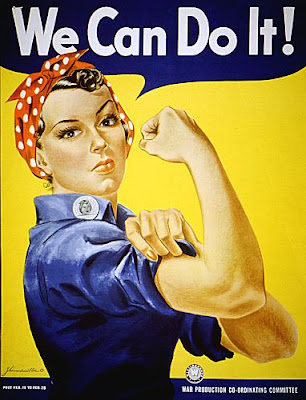This is a National Statement from the
Women of Color Network. We thought it was so terrific we have reposted it here.
"Harrisburg, PA: The alleged domestic violence incident involving Chris Brown and R&B singer Rihanna has ignited national discussion about dating violence.
The early media coverage focused on the chain of events: how the seemingly happy couple attended the Grammy Awards parties; the argument over a text message; Brownís physical assault of Rihanna; her calls to her personal assistant to have the police waiting for her when she arrived at home; and Brownís threats to kill her. The shock of the picture bearing Rihannaís battered face seemed to quell any denial that the incident actually happened. People began to ask, "How could Chris Brown have done this?"
Then, as rumors began to swirl that Rihanna was going to reunite with Brown, the subject switched to whether or not the purported assault was ìprovokedî by Rihanna. The question "what did she do to make him hit her?" is an almost instinctive response ingrained in the fabric of our society, and one that ultimately places the blame on the victim. Unfortunately, the assertion that domestic violence victims somehow "provoke" batterers has been repeatedly used to both justify domestic violence and reduce the culpability of the perpetrator.
And now the conversation has landed in a place that those of us who are advocates around the country hear almost every day: "Why does she stay?" It is not unusual for victims to remain with an abusive partner. For many survivors, it takes several rounds of leaving before they are able to gather the resources, support, and information needed to ultimately end a relationship. We as advocates know that leaving is not always the safest option - victims who leave their partners are just as likely to be re-abused as those who stay with their partners.(1) The focus should not be on whether or not Rihanna stays in the relationship; the focus should be making sure that she knows all of her options and has a safety plan in place in the event that she finds herself further endangered.
That leads us to our question: Who is helping Rihanna? We know that Sean "P. Diddy" Combs provided a space for Brown to reconcile with Rihanna. We understand that Brown and his legal counsel are going into private negotiations concerning his two felony charges in which he is reportedly requesting no jail time. We also hear they are recording a new duet. All of these occurring days after the physical wounds have barely healed upon her face.
So again, we ask, "Who is helping Rihanna?" Where is her time to emotionally heal? To think about what has happened to her? Where is the opportunity for her to just breathe? Does she have an advocate? Does she know that she is entitled to one? Who is helping her determine what is in her own best interest as a survivor?
As advocates in the anti-violence against women movement, we recognize the coercive tactic of the whirlwind that often occurs after battering..."Baby, I'm sorry"; "Let's reconcile"; "Let's show the public you are not harmed"; "Let's fix my reputation"; "Let's keep me out of jail"; "Let's save my career"; "Let's keep you isolated from people who can help you." This is just another extension of the abuse.
As a young woman of color, there is a lot of pressure being placed on Rihanna to serve as a model for others, and she is receiving harsh public warnings from prominent talk show hosts and critics of all races to "leave him". She is also hearing from parents and youth that they are disappointed with Rihanna for "taking him back". This seems to come from a genuine place of wanting to help her, but telling her what to do is not a way to help her, and blaming her for continuing to be involved with Brown takes the attention away from his actions.
Just like any other survivor of domestic and dating violence, Rihanna should have access to people who will hear her out, let her talk through her pain, listen to her reasons for staying with Brown and for possibly leaving, and who have the expertise to assist her in developing a safety plan in case she finds herself in danger again.
We understand now that Rihanna and Brown are reportedly taking a small break though not breaking up. We encourage Rihanna and those surrounding her to reach out to national, state and local organizations equipped to provide information to survivors as they go through the trauma of domestic and dating violence and consider their options in seeking safety and security. We join others in suggesting that Chris Brown seek help beyond anger management because battering is not about anger, it is about power and control. Batterer intervention or re-education is a better choice.
We hope to see Rihanna and Chris Brown get the individual assistance they each need. We also hope that the national dialogue will move to realities and solutions to dating and domestic violence."

"Who is Helping Rihanna?" A National Statement from the Women of Color Network
 The Huffington Post has an interesting article today by Patrick Souer. Apparently a notable majority of teens and reporters blame Rihanna to some degree for the abuse she experienced at the hands of Chris Brown.
The Huffington Post has an interesting article today by Patrick Souer. Apparently a notable majority of teens and reporters blame Rihanna to some degree for the abuse she experienced at the hands of Chris Brown.





![[VolunteerMatch - Where Volunteering Begins.]](http://www.volunteermatch.org/images/2.0/new_logo.gif)
